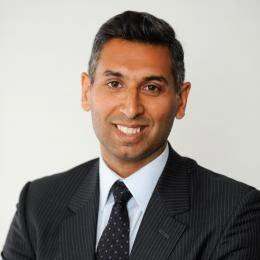US sports betting: ‘betting doesn’t create match-fixing, criminals do’

As part of an interview series featuring speakers from November’s inaugural Sports Betting USA conference, Khalid Ali, secretary general of the European Sports Security Association (ESSA) speaks to Clarion Gaming’s head of content Ewa Bakun about how the trade association could help regulators across the pond if and when the sports betting market opens up.
What are the main objectives of ESSA?
ESSA is an international trade association that was created by the leading, licensed, regulated sports betting operators to detect, disrupt and report any suspicious betting activity.
We have created a platform that allows our members to share information on suspicious alerts. This will be analysed by our betting integrity officer and if there is enough evidence it will be reported to the relevant authority.
Who are the key stakeholders involved in ESSA and what is the framework of cooperation between them?
We currently have 25 of the leading sports betting operators all working together on combatting betting related match-fixing. We work with sports governing bodies and gambling regulators through a framework of memorandum of understandings (MOU), which allows us to pass on information about events that might be manipulated for betting purposes.
Which are the main partners that ESSA works with?
The three partners we work most closely with are the Tennis Integrity Unit, the International Olympic Committee and FIFA.
Have you ever encountered/intervened in incidents involving US sports? What happened? How were they solved?
Nothing involving US sports, although we have MOUs with the National Hockey League and Major League Soccer.
Can you briefly explain how sports integrity is ensured in markets where betting is regulated? Why do you advocate regulation as a way to ensure the integrity of sports?
Betting does not create match-fixing; it is primarily the product of criminals and corrupt sportspeople. It is fundamental to understand that betting related match-fixing is an activity aimed at manipulating sporting events to defraud betting operators and consumers; betting operators are victims of crime.
The regulated betting sector is focused on providing products which are fair and to employing sophisticated security measures to detect and deter those who would seek to manipulate sporting events. The licensed betting industry, notably the European-based sector, is highly regulated and creates a safe and secure environment for consumers and sports bodies.
The unregulated betting sector is the problem. The UNESCO Declaration of Berlin recognises that “legal betting operators are dependent on the integrity of sport and have an interest in and share the responsibility for the integrity of the betting market”.
Can you map out briefly where the main incidents of match-fixing occur and why?
Match-fixing is a global problem. In 2016 we reported 130 cases of suspicious betting on sporting events, led by tennis with 103 cases, followed by football with 16.
From a geographical perspective, Europe, with 71 cases, posted the highest number of sporting events on which suspicious betting was identified, followed by Asia with 25 cases. In North America we reported seven cases, of which three were related to tennis which took place in the USA.
What are your expectations and objectives for the Sports Betting USA conference in New York you’re speaking at in November?
One of the key issues in determining whether the sports betting market opens across the States is around the issue of sports integrity. We are therefore keen to meet with US sports and other stakeholders to explain how we tackle this issue and how we can be part of the solution.
Khalid Ali is the Secretary General of ESSA as well as providing strategic counsel to his members, he is also their chief spokesperson. Since he joined in 2008, Khalid has helped grow the association from seven to 25 betting operators. He has also been involved in a number of high level policy forums such as the Council of Europe’s Convention on Match-Fixing and the European Commission’s Expert group on good governance.
Khalid will be speaking on the panel “Sports Integrity: Exploring the interplay between sports betting regulation and sports integrity – experiences from regulated vs. non-regulated markets” at the inaugural Sports Betting USA conference, taking place in NYC from 14-15 November.
Related articles: US sports betting: 'the NFL’s stance is simply wrong'
US sports betting: ‘the leagues just won’t have a choice anymore’
Sports betting: what does NJ’s Supreme Court hearing mean for US? (paywall)
New Jersey sports betting appeal date set
